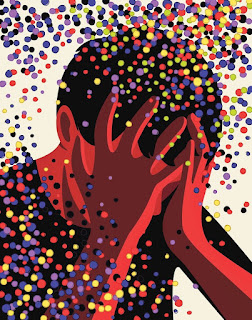Krista L. R. Cezair
Ms. Magazine
Originally posted 22 Feb 24
Here is an excerpt:
In the spring of 2018, I was so sick that I simply couldn’t consider my future performance on the bar exam. I desperately needed help. I had very little insight into my condition and had to be involuntarily hospitalized twice. I also had to make the decision of which law school to attend between trips to the psych ward while ragingly manic. I relied on my mother and a former professor who essentially told me I would be attending Harvard. Knowing my reduced capacity for decision‐making while manic, I did not put up a fight and informed Harvard that I would be attending. The next question was: When? Everyone in my community supported me in my decision to defer law school for a year to give myself time to recover—but would Harvard do the same?
Luckily, the answer was yes, and that fall, the fall of 2018, as my admitted class began school, I was admitted to the hospital again, for bipolar depression this time.
While there, I roomed with a sweet young woman of color who was diagnosed with schizophrenia, bipolar disorder and PTSD and was pregnant with her second child. She was unhoused and had nowhere to go should she be discharged from the hospital, which the hospital threatened to do because she refused medication. She worried that the drugs would harm her unborn child. She was out of options, and the hospital was firm. She was released before me. I wondered where she would go. She had expressed to me multiple times that she had nowhere to go, not her parents’ house, not the child’s father’s house, nowhere.
It was then that I decided I had to fight—for her and for myself. I had access to resources she couldn’t dream of, least of all shelter and a support system. I had to use these resources to get better and embark on a career that would make life better for people like her, like us.
After getting out of the hospital, I started to improve, and I could tell the depression was lifting. Unfortunately, a rockier rock bottom lay ahead of me as I started to feel too good, and the depression lifted too high. Recovery is not linear, and it seemed I was manic again.
Here are some thoughts:
In this powerful piece, Krista L. R. Cezair candidly shares her journey navigating bipolar disorder while achieving remarkable academic and professional success. She begins by describing her history of depression and suicidal thoughts, highlighting the pivotal moment of diagnosis and the challenges within mental health care facilities, particularly for marginalized groups. Cezair eloquently connects her personal experience with broader issues of systemic bias and lack of understanding around mental health, especially within prestigious institutions like Harvard Law School. Her article advocates for destigmatizing mental health struggles and recognizing the resilience and contributions of those living with mental illness.




